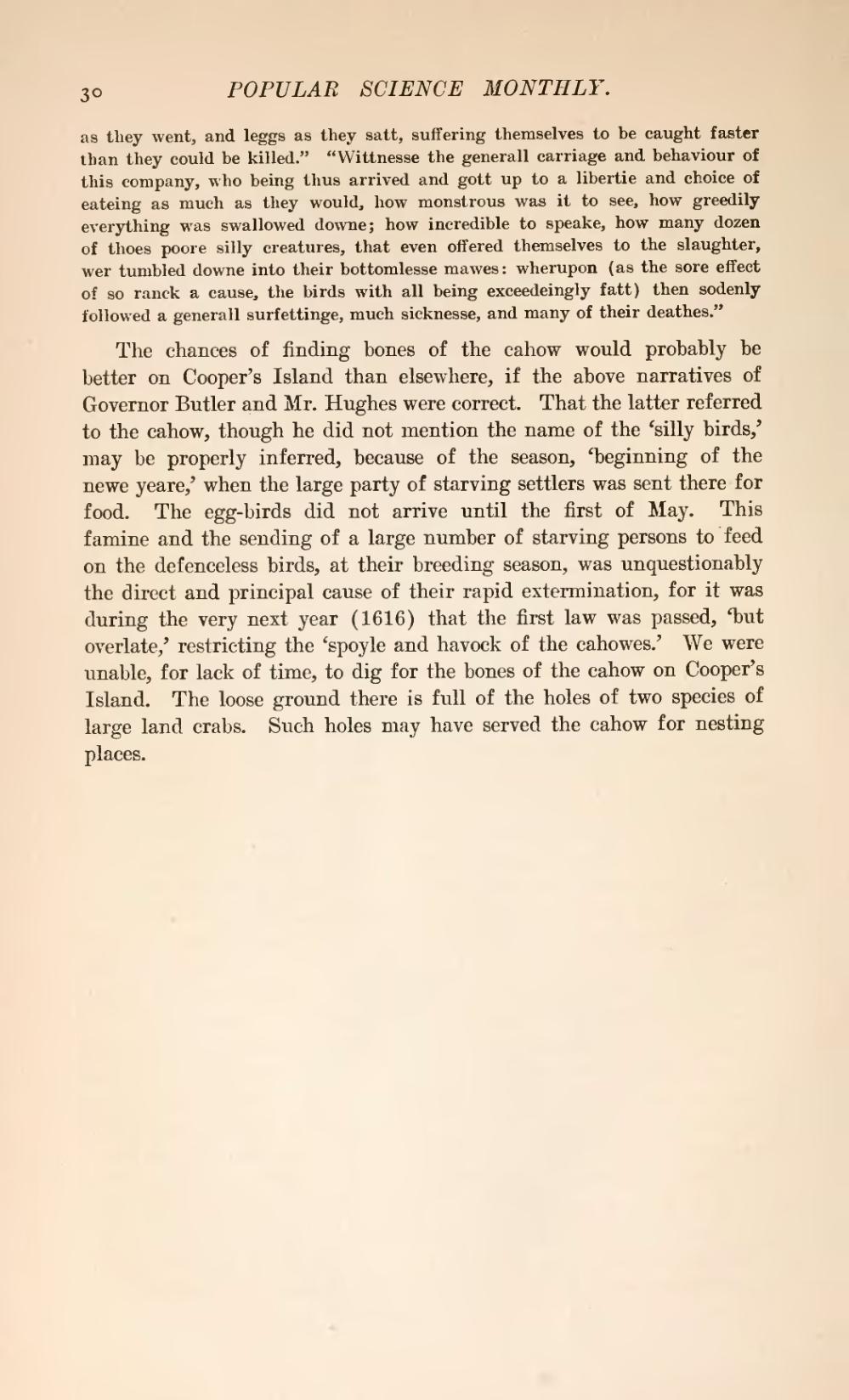The chances of finding bones of the cahow would probably be better on Cooper's Island than elsewhere, if the above narratives of Governor Butler and Mr. Hughes were correct. That the latter referred to the cahow, though he did not mention the name of the 'silly birds,' may be properly inferred, because of the season, 'beginning of the newe yeare,' when the large party of starving settlers was sent there for food. The egg-birds did not arrive until the first of May. This famine and the sending of a large number of starving persons to feed on the defenceless birds, at their breeding season, was unquestionably the direct and principal cause of their rapid extermination, for it was during the very next year (1616) that the first law was passed, 'but overlate,' restricting the 'spoyle and havock of the cahowes.' We were unable, for lack of time, to dig for the bones of the cahow on Cooper's Island. The loose ground there is full of the holes of two species of large land crabs. Such holes may have served the cahow for nesting places.
Page:Popular Science Monthly Volume 60.djvu/38
Jump to navigation
Jump to search
30
POPULAR SCIENCE MONTHLY.
as they went, and leggs as they satt, suffering themselves to be caught faster than they could be killed." "Wittnesse the generall carriage and behaviour of this company, who being thus arrived and gott up to a libertie and choice of eateing as much as they would, how monstrous was it to see, how greedily everything was swallowed downe; how incredible to speake, how many dozen of thoes poore silly creatures, that even offered themselves to the slaughter, wer tumbled downe into their bottomlesse mawes: wherupon (as the sore effect of so ranck a cause, the birds with all being exceedeingly fatt) then sodenly followed a generall surfettinge, much sicknesse, and many of their deathes."
